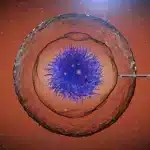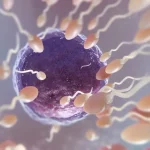
By Dr. Kulsoom Baloch, MBBS, MPH
Reproductive Endocrinology and Infertility Division at EggDonors4All.com
Introduction
Preimplantation Genetic Diagnosis (PGD), also referred to as Preimplantation Genetic Testing (PGT), allows IVF specialists to identify genetic or chromosomal issues in embryos prior to implantation. With more patients choosing to freeze embryos for future use, many ask: can these embryos still undergo PGD?
The answer is yes. This blog explains how PGD is applied to frozen embryos, the benefits, risks, and what you need to know about legal and ethical issues, especially regarding surplus embryos.
How PGD Testing Works on Frozen Embryos
PGD testing can be performed on embryos that were frozen at the blastocyst stage. The steps are:
- Embryo is thawed in the lab.
- A few cells are biopsied from the trophectoderm.
- The embryo is refrozen using vitrification.
- Genetic analysis is performed (PGT-A, PGT-M, or PGT-SR).
- Embryo is transferred in a later cycle if results are normal.
Top Reasons to Consider PGD for Frozen Embryos
- Identify inherited conditions (e.g., thalassemia, CF, BRCA mutations)
- Improve IVF success rates and reduce miscarriages
- Ensure chromosomal normality (PGT-A)
- Elective gender selection (where permitted)
- Select the best embryo for surrogacy
Risks and Costs to Consider
- Thaw-refreeze cycles carry a small risk of embryo loss
- Only blastocyst-stage embryos can be biopsied
- Cost of PGT ranges from $3,000–$6,000 or more
- Some abnormalities may still go undetected
Who Should Consider PGD Testing of Frozen Embryos?
It’s especially useful for:
- Couples with prior IVF failures
- Women aged 35 and older
- Couples with a history of miscarriage
- Surrogacy arrangements
- Known carriers of genetic diseases
What About Surplus Embryos?
After successful pregnancies, many parents have surplus embryos stored. They may:
- Use them later
- Donate to other families (embryo adoption)
- Donate to research
- Consent to disposal
Donation requires legal agreements and may involve PGD to ensure embryo quality for recipients. FDA or Health Canada screening is often required.
Contact EggDonors4All
Dr. Kulsoom Baloch, MBBS, MPH
Coordinator, Egg Donor Program
Address: kulsoom@indianeggdonors.com
Phone: 917-601-4919 or 212-661-7177 Ext.135
Address: 1148 Fifth Avenue, Unit 1C, New York, NY 10128
Website: www.EggDonors4all.com

Dr. Kulsoom Baloch
Dr. Kulsoom Baloch is a dedicated donor coordinator at Indian Egg Donors, leveraging her extensive background in medicine and public health. She holds an MBBS from Ziauddin University, Pakistan, and an MPH from Hofstra University, New York. With three years of clinical experience at prominent hospitals in Karachi, Pakistan, Dr. Baloch has honed her skills in patient care and medical research.





